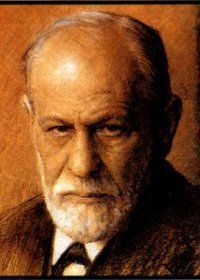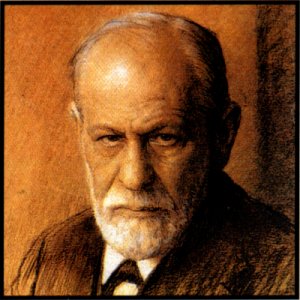How many kinds of abstinence are they?
“For there are eunuchs who were born so from their mother‘s womb, and there are eunuchs who were made eunuchs by men, and there are eunuchs who made themselves eunuchs because of the kingdom of heavens” (Matthew 19.13)
This article is a late answer to a very much discussed question a physician writer asked:
How can one live in abstinence without deranging oneself, since medicine has proven long ago that the cause of many mental and even organic diseases is most of the time the sexual dissatisfaction? The organism needs the sexual activity as much as food or air. Man is part of nature and he submits to them, that is why bending them cannot be without destructive consequences.
A piece of classic reasoning that everybody knows about… Nothing one could say against this logical description that has been demonstrated by so long a practice of medicine. We read about it in the magazines, we hear about it on TV, we learn about it in school.
We are bombed from all over the place by advertisements of all kinds: “Do it this many times a day and you will be more beautiful! Those who do this and that don’t grow old! ” And so on…
We all know the looks of an abstinent person, more exactly his cartoonish image. He has pimples on the face, he is nervous, even hysterical, he is tyrannized by fantasies who give him a sullen look, in one word he is a cradle of complexes.
Yet, it is difficult to use this argument when you present it to a young monk who does not show any of these symptoms. Monks and nuns are, in an overwhelming proportion, extremely beautiful people, first of all physically, people happy to be alive, and secondly embellished by an unusual sensitivity.
“Never mind! We know they have their own nuns, in the worst case they are all homosexuals!”
I wouldn’t want to argue a so spread an opinion about monks and neither will I defend the right of monasticism to exist. I want to refer briefly and concretely on what is real. It is sure that monasticism exists, whether it infringes or not on the laws of nature. This is the reason my answer is not a defense, but a story about a phenomenon that has been with us for two thousand years, gracefully surpassing the laws of biology.
Yes, man has instincts, Freud is right. So is Darwin, to a certain extent. Man is a slave to these instincts and he satisfies them with animal appetite. I personally saw people deranged because of sexual dissatisfaction, women with hairy necks and with eyes burning of an uncontained desire. All these are true and I have no reason to contradict the medical point of view. To support the tradition of our Church I need not destroy scientific truths. On the contrary, I will use them in my argumentation because they are also my truths.
Indeed, if we cast God away from the Universe, as Darwin and Freud did, if we consider death the limit of human life, then man is a simple rational animal which is born, grows, has descendants and dies. A healthy member of the species must satisfy all these conditions, he must be a link between generations. In this picture, monks and the abstinent are dead links, parasites ruining the natural harmony.
The man raised in this limited space, tyrannized by the imminence of death, the man who beholds sick and old people has reasons to anchor himself on this theory. He knows he was born, he saw himself grow, taken over by organic impulses and, therefore, he believes it.
Therefore, it is faith that determines the reactions and the state of man.
Freud knew it very well when he was applying his method of plunging into the patient’s past. He needed the memories and obsessions of his patient to… devise for him a story that was good enough to believe in! Out of these images and obsessions, maybe without any interrelationship for the patient, Freud would put together a creed. The creed was the easier to accept the more it consisted of very familiar but also quite mysterious elements. This way, the patient regained coherence of thinking, and coherence made him healthy.
There are in a man’s life familiar things, new things, some pleasant some unpleasant, and shocking things. It all depends on the tradition in which one has been educated. Education determines to a large extent man’s reactions, not only mental reactions, but also the organic ones.
For example, there comes to mind a story told by friends who worked somewhere in Astrakhan cutting trees. It is known that locals eat dogs. They happened to be at a supper where they ate their fill, without knowing what they ate and, of course, liked it. It is only that, when they were told what they had eaten, they ran outside and threw up everything. Their organism had taken the food in, but their psyche, because of their education, expulsed it furiously, breaking the natural necessity of nutrition felt by the body.
The same happens in case of sexual needs. A man educated in a society that is Freudian par excellence, such as ours, feels quite naturally the symptoms described by the Viennese scientist.
The metabolic dysfunctions of the abstinent described by Freud and by the post-Freudian medicine do not necessarily rest on organic grounds but, first of all, on psychic ones. I personally knew and I still know persons with emotional problems who were advised by doctors to lead a more intense sexual life. But they didn’t get to lose their neck hair, nor to get rid of their depressions, or to improve their relationships with others. On the contrary, after reaching the point of bringing out things from their homes, gold and money to pay off the neighborhood teenagers “for the treatment”, somebody I knew ended up committing suicide. I think there are many ending up this way, but I don’t know statistics.
The atheist doctors’ belief in this hypothesis of sexual healing has been dreadfully exaggerated, al least in Romania. I know very well that in mental hospitals patients are enabled to mate like animals and, after a while, surgeons come and perform abortions on the poor female patients. I wonder weather this method of treatment is more “human” than abstinence.
It is not the lack of sexual activity and of seminal deposits that makes the patient miserable, but the lack of affection. Freud also took notice that the alienated depressed masturbate a lot so, one way or the other, they fulfill their physiological needs. Nevertheless, this does not awaken their vitality and does not cure their disease. If a temporary improvement was noticed after this type of treatment (it is known that doctors couple of patients to this effect), it is only because the two poor people, humiliated this way, may have probably united their souls as well, beyond this sad, animal seminal discharge. That is to say, they must have known a beginning of love, as much as made possible for them.
In order to understand the paradox of the fortunate abstinence of monks one must first separate the world in two. There is the Freudian space, in which the contemporary society dwells, and there is Christ’s space, in which all saints have been dwelling since the beginning of time and until the end of it.
Freudian space is closed, on one side by the mystery of birth and on the other by the absurd and the imminence of death. Inside this morbid hump, man has very few pleasures at hand, in exchange has lots of phobias: fear of death, of malady, of old age, of poverty, fear of loneliness.
From this perspective, man’s life is but a painful absurdity, which he must change into something beautiful. That is why man binds himself to any opportunity for pleasure life offers him: sexual pleasure, the most powerful of them, the pleasure to create beautiful objects, the pleasure of knowledge as much as possible, even the trivial pleasure of eating well.
From this viewpoint, the evolution of Greek hedonism as explained by researchers like Mircea Eliade[1] or Walter Otto[2] becomes interesting. The Greeks were not a non-religious people, like Freud’s man is, they were not unaware of the faith in eternity and in the intervention of supernatural forces. It is just that gods whom Greeks believed in were not philanthropic, they felt no compassion for the suffering of mortals, they did not support them. On the contrary, when Prometheus, a minor god, wanted to bring fire to men, Zeus punished him severely, tying him up to a rock where vultures would peck at his leaver, which recovered over night, to be thus devoured unceasingly. These men, filled with despair, amplified also by their belief in an unchangeable destiny, at the end of which the flames of Hades awaited, decided to experience their share of pleasure here, on earth. So did theaters, Dionysus’s orgies, Olympic Games multiply.
The Freudian man, who is anybody who watches today TV with delight, has even more reasons than the Greeks to demand his right to pleasure. After being born against his will, man is thrown in a world full of injustice, is compelled to do things he doesn’t like, only to grow old and die eventually.
The most powerful pleasure towards which, according to the same Freud, man aspired since childhood, appears to man as a liberating oasis. This is sexual pleasure, adorned with the garlands of a minor mysticism, in the best case, like some of the oriental beliefs.
This pleasure becomes a purpose, but also an evaluation criterion. A man is more of a man if surrounded by women and a woman more of a woman if surrounded by men. In one word, to live means to satisfy your physiological needs.
It is natural that the young man who, for various reasons, has no access to these pleasures feels unfulfilled, a waste. This state vexes him and plunges him into the hell of melancholy and uselessness. He creates a world of his own hidden thoughts, in which he is a hero, has a motorcycle and money. He is never at rest, while faces of mermaids take him out of the troubled waters of his imagination to the black shores of illness.
Here is the reason of Freud’s man falling ill: the sensation of one’s own uselessness and lack of accomplishment, threatened by the intransigent death closing in, and not at all the trivial unsatisfying of physiological needs.
Monks do not suffer any of these complexes. Their universe is configured quite differently altogether. The true monk has no conscience of the past or of the future, only of the present, a present of one instant. Beyond this instant eternity begins.
Not belonging to this world, having the immutable belief that the earth is just a rented hotel room he will soon desert, the monk leads a rather out of body existence as Saint Paul the Apostle wrote: “And if Christ is in you, the body is dead because of sin, but the Spirit is life because of righteousness” (Romans 8.10). ”For the law of the Spirit of life in Christ Jesus has made me free from the law of sin and death” (Romans 8.2). “Therefore, brethern, we are debtors -not to the flesh, to live according to the flesh” (Romans 8.12.) Lodging, food and all his activities represent and nourish this way of living called “angelic”.
In order to stop caring for the body, monks don’t even cut their hair or beard and the ascetics of old did not even wash their bodies, and so are doing many monks from Athos and from monasteries not open to visitors[3]. According to monastic rules, monks sleep dressed with the same clothes they wear during the day (or at least with the same type of clothes – the monastic clothes), leather belts tied around their waists, like soldiers always ready to die. This helps them get rid of the obsession for the body and for its needs.
The unfaithful always mocked the non-hygienic conditions of the Christian ascetic way of living. Soviet atheists used very seriously this aspect in their lectures, as to prove the inhumanity of Christian religion that dishonours the dignity of man in the name of an absurd and sadistic God, Who enjoys the humiliation of His creature. How many of those holding these beliefs have ever had the opportunity of knowing or at least seeing a true ascetic?
 The bodies of these men do not exhale the unpleasant smell of filth, as they should according to nature. I personally have the joy of living by the side of such a holy elder, 93 years of age, and I can relate it to you. I did not personally witness it, but a trustworthy monk (who is a graduate of the Faculty of Medicine of Bucharest) told me about another such “unwashed” elder from a Romanian monastery that, when he kissed the elder’s hand, it smelled like roses. At the time he told me the story he was not a monk yet, and he said he wasn’t too keen on kissing it, as he saw his tousled appearance, in a cell full of spiders, especially since he was not a priest but a deacon. After leaving the room he asked the friend who brought him along, who also became a monk somewhere, if they had given the elder a bath, since he smelled that way. He was told the elder had not taken a bath in ten years. The elder’s stature was so that he brought rain at drought time with his prayers.
The bodies of these men do not exhale the unpleasant smell of filth, as they should according to nature. I personally have the joy of living by the side of such a holy elder, 93 years of age, and I can relate it to you. I did not personally witness it, but a trustworthy monk (who is a graduate of the Faculty of Medicine of Bucharest) told me about another such “unwashed” elder from a Romanian monastery that, when he kissed the elder’s hand, it smelled like roses. At the time he told me the story he was not a monk yet, and he said he wasn’t too keen on kissing it, as he saw his tousled appearance, in a cell full of spiders, especially since he was not a priest but a deacon. After leaving the room he asked the friend who brought him along, who also became a monk somewhere, if they had given the elder a bath, since he smelled that way. He was told the elder had not taken a bath in ten years. The elder’s stature was so that he brought rain at drought time with his prayers.
What make the body stink are the passions in action, exhaling the stench of death. The body deified by the work of grace, can spread an unnatural fragrance, such as we experience in the closeness of the holy relics of the saints. Therefore, if the saints’ bodies that have been dead for hundreds of years, others for almost two thousand, could smell so sweet, it is no wonder they smell the same while alive.
To make myself understood, I am going to use an example more familiar and easy to verify. The pigs, bulls and bullocks butchers, know very well that the males marked for slaughter must be castrated ahead of time to spare the meat of the characteristic odour. This odour is not a consequence of the filth of the animal, nor can it be removed by washing, but it is the result of hormonal activity. The men who reached dispassion, the holy monks we are talking about, by cutting off within themselves any movement or desire of the flesh, have rescued their bodies from the stench of the passions, which stench others cannot remove with the most expensive soaps and perfumes.
The monk’s central preoccupation is the cessation of fantasy, of any human imagination, even of righteous ones, in order to make way to the grace of the Holy Spirit. Therefore a monk advanced in virtue practically has no personal desires, since it is no longer he who lives, but it is Christ who lives in him (Galatians 2:20), like one who has no past nor future, only the blessed premonition of eternity, or better said, one who lives eternity.
Under these circumstances, the abstinent for Christ is protected from the factors that can cause organic and psychological damages. The fantasies, which support and amplify the Freudian man’s suffering, as far as Christians are concerned, are either totally missing or they only last for a while, unable to divert the will from its main goal which is Christ[4].
it is continiued ……
source: http://savatie.trei.ro/savatie/intre_Freud_si_Hristos.htm



